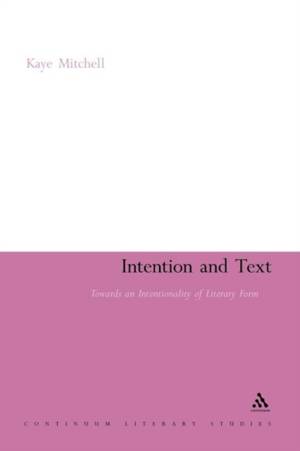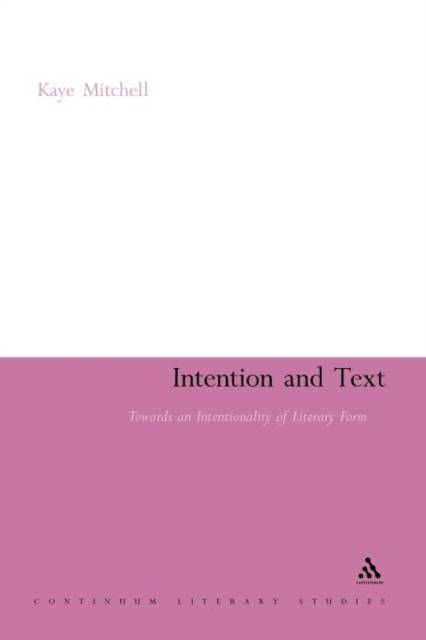
- Afhalen na 1 uur in een winkel met voorraad
- Gratis thuislevering in België vanaf € 30
- Ruim aanbod met 7 miljoen producten
- Afhalen na 1 uur in een winkel met voorraad
- Gratis thuislevering in België vanaf € 30
- Ruim aanbod met 7 miljoen producten
Omschrijving
The question of intention is central to the study of literature. How far can an author's intentions determine the meanings of his/her text? What do we mean by 'intention' in a literary context? What force does the reader's intention have in the construction of textual meaning? To what extent can a text itself be said to be 'intentional'?
The aim of this book is to provide an in-depth analysis and critique of this concept of intention, its uses within the realms of literary theory, aesthetics, philosophy of language, phenomenology and deconstruction, and its potential for redefinition. Mitchell sets out to re-think intention and interrogate the possibilities of an intentionalism more suited to a formalist or textualist critical methodology. She moves from an assessment of the pitfalls of a traditional authorial intentionalism, towards the formulation of an 'intentionality of form', where intention is seen as a formal attribute of the text itself
Specificaties
Betrokkenen
- Auteur(s):
- Uitgeverij:
Inhoud
- Aantal bladzijden:
- 192
- Taal:
- Engels
- Reeks:
- Reeksnummer:
- nr. 192
Eigenschappen
- Productcode (EAN):
- 9781441198648
- Verschijningsdatum:
- 29/12/2011
- Uitvoering:
- Paperback
- Formaat:
- Trade paperback (VS)
- Afmetingen:
- 156 mm x 234 mm
- Gewicht:
- 276 g

Alleen bij Standaard Boekhandel
Beoordelingen
We publiceren alleen reviews die voldoen aan de voorwaarden voor reviews. Bekijk onze voorwaarden voor reviews.







